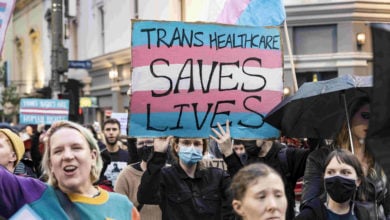Today, workers in 29 states experience workplace discrimination based on their sexual orientation. In 34 states, workers still experience legal discrimination based on their gender identity.
Across the board, members of the LGBT community experience unemployment, poverty and homelessness at higher rates.
The Employment Non-Discrimination Act
After decades of struggle against rampant workplace discrimination for LGBT people, the Employment Non-Discrimination Act (ENDA) sits in Congress. But the ENDA is not a new idea. As it stands now, with some minor revisions, the ENDA has been submitted to every Congress except one since 1994. Each time, the bill has been either rejected or killed by Congress. In fact, tracing attempts to stop workplace discrimination through legislative means shows that similar bills have been put before Congress since 1974. Each time, the bill was smashed by both Republican- and Democrat-ruled Congresses.
The first ENDA—submitted to Congress in 1994—did not include gender identity, leaving the transgender community excluded. Regardless, Congress would not even put the bill on the table. In 2007, Congress first had a bill including gender identity. Subsequently, after the bill’s failure, gender identity was removed and the bill was put forward again with no success. In April 2013, the ENDA was submitted yet again and is currently in waiting.
While the Employment Non-Discrimination Act, if passed, would end legal workplace discrimination in terms of hiring and firing an employee based on their sexual orientation or gender identity in large businesses, there are many problems. The bill does not cover workers in small businesses. It does not apply retroactively, so those wrongly fired or denied employment have no legal recourse. It does nothing to insure LGBT equal opportunity, and does not stop employers from using “neutral business practices,” such as forcing members of the transgender community into restrooms they do not identify with.
Nearly half a century and countless attempts at reform have shown that this government is simply not serious about LGBT rights. And that’s because LGBT oppression, subjugation and poverty are not simply consequences of a few bigots—they are systematically and institutionally built into the entire social and economic system. Institutionalized bigotry systematically creates a subclass of workers allowing capitalists to pay lower wages, avoid providing benefits and permit poor working conditions. It also obstructs unity against the bosses by pitting worker against worker.
The only way to permanently end workplace discrimination and institutionalized bigotry is revolutionary change in society—to have workers control the workplaces and the government in our interests, rather than the capitalists who’s overarching interests are precisely inequality and discrimination.






